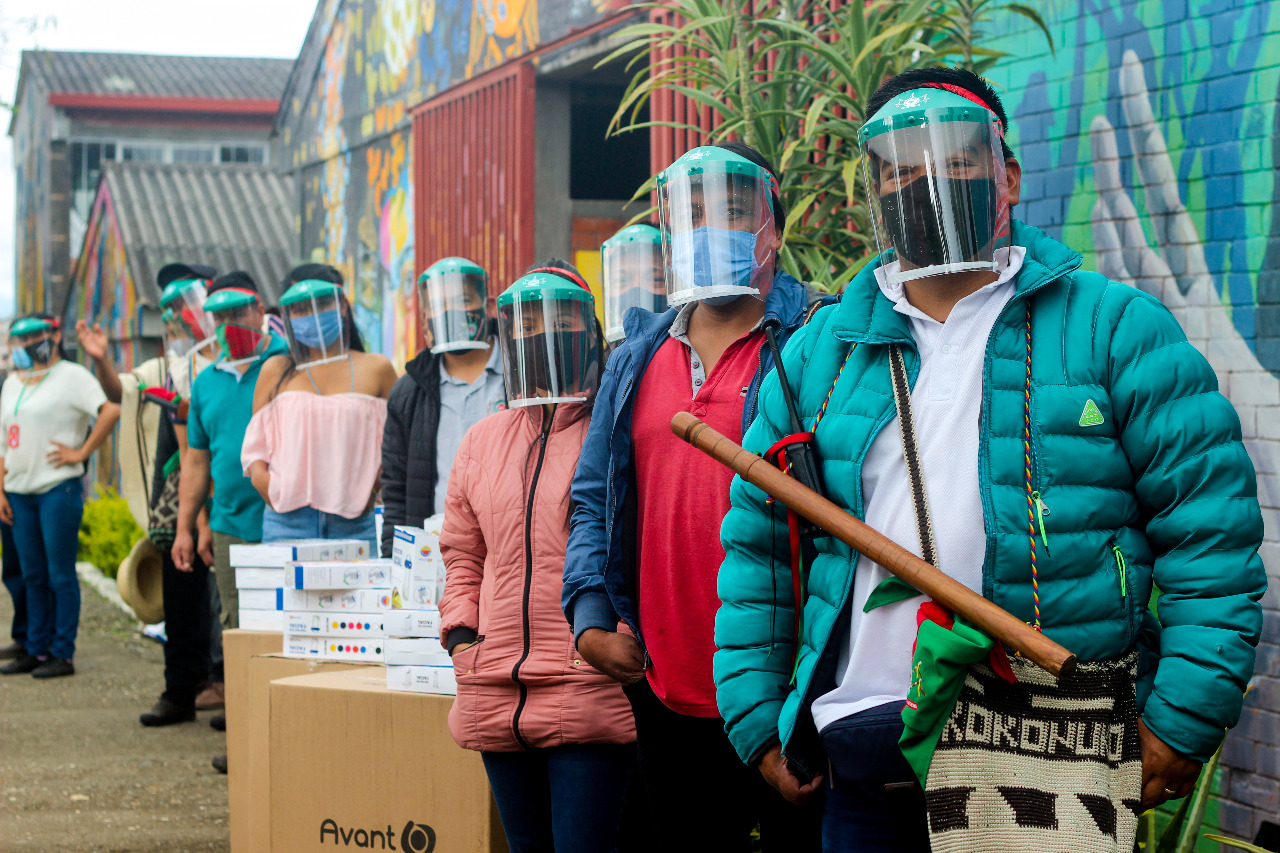Apr 6, 2021 3:17:25 PM
Bob Snow

“I work in development because I want to build a better country for me and for every single Colombian,” Sofía Paredes Chaux says.
Sofía is Head of Exploration at the United Nations Development Program Accelerator Lab in Colombia. She and her colleagues, Juan David Martin, Head of Experimentation, and Cristian Gil Sánchez, Head of Solutions Mapping, have been leading the Lab’s many development efforts since it began in 2019. One of those efforts was the crowd-sourced creation of a new closed face shield called the Life Helmet, created in response to the COVID-19 pandemic last year.
“UNDP Accelerator Labs is a global experiment at scale to test new ways of working to address social and environmental challenges,” says Erika Antoine, Strategic Communications & Partnerships Specialist at UNDP Accelerator Labs.
“It’s really a way of approaching development differently, in very agile fashion,” Erika says. “Sofía, Cristian, Juan and 300 other Accelerator Labs people around the world are trying to become the fastest and the largest learning network on sustainable development. We’re trying to be super-fast, using innovation to solve the global goals of UNDP, but in a different manner than the usual long-term planning that thinks five years ahead. The Life Helmets initiative is a great example of how we can create an immediate response to an urgent need.”
In fact, the Life Helmets took only eight weeks to produce from their initial inception. The speed with which it could be created is a testament to Accelerator Labs’ platform approach to initiatives of this kind. The platform for the Life Helmet involved multiple stakeholders: the national government, academic researchers, small and large manufacturers, and the grassroots innovators who designed the initial prototypes.
A nation-wide contest was created by the Colombia Accelerator Lab, activating the vice-president of Colombia, the Colombian Industrial Association, the Colombian Plastic Association, the Makers Community, and EAN University.
“We received 400 design proposals from around the country, and 12 winning teams were selected to create completely closed face shields that prevent cross-infection and self-infection by restraining access to eyes, mouths, or noses,” says Sofía.
Because the Life Helmet designs are open source, any company of any size can access the designs, produce them, and sell them in an open marketplace. At the same time, Accelerator Labs has donated more than 20,000 Life Helmets to vulnerable communities, indigenous communities, and Colombian farmers.
“Thanks to the combined participation of individuals, communities, academia, private sector, and public sector, we are increasing the impact of what we’re doing in a big way,” Cristian says. “And we can learn from our experience with Life Helmets by applying it to other projects in the future.”
Life Helmets is only one of many initiatives that Colombia’s Accelerator Lab has undertaken. “Our goal is to turn hotspots of challenges into hotbeds of human development,” says Juan. “We want to close the last-mile gap.”
In fact, Sofía, Cristian, and Juan had just returned from a crisis area in Colombia at the time of our interview with them. “We’ve been working with a crisis team since November 2020 on Colombia’s Caribbean islands to the north,” Juan says. “The Caribbean Sea was hit by hurricanes at that time, and the islands were badly affected.”
“We began with a fast-action strategy – not a humanitarian action, which was being done, but a development action. We used technology that employed 360 cameras and a drone. From there, we built a realistic experience by using augmented reality glasses and virtual reality headsets,” Juan says.
As a result, without being physically there, experts could safely experience the crisis area, accurately assess the environment, clearly determine how people were coping, and make fast decisions about what the immediate needs were to rebuild infrastructure.
“It was a faster way of getting to the next step of providing real help in the medium and long-run,” Juan says. “So last week, we were already working on the next phase. We helped to showcase repairs accompanied by top quality hands-on training, we provided the government with key data about the current conditions, and now we're working on economic activation for the local communities.”
“The thing is, Accelerator Labs are going right into the field, trying to connect directly with people’s lives, from a grassroots perspective. It’s a bottom-up and top-down approach at the same time,” Cristian says. “We are helping local communities first, but what we’re doing also can be done on a global scale. Once a good idea or a good practice is embedded in a community, it can easily be spread around the world. It can change how governments make decisions, what industries produce, and how economies perform. It’s that profound.”
“Colombia is full of complex issues. We have high rates of inequality. We have climate change and environmental issues. We have been in conflict for more than 50 years. And there are high levels of corruption. But despite all of that, we have an amazing cultural and environmental diversity,” says Sofía.
“We are a country full of amazing, resilient, and resourceful people who wake up every morning wanting to create a better life for themselves and for their loved ones. To have the opportunity and pleasure to meet and work hand-in-hand with these people has been a fulfilling experience for me. And it has taught me valuable lessons, giving me perspective of what really matters and what really is important to life. That's why I… and all of us… want to keep doing it.”